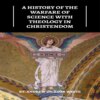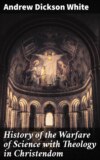Czytaj książkę: «Records of the Spanish Inquisition, Translated from the Original Manuscripts», strona 9
Inquisition of Barcelona, Oct. 31st, 1739.
Don Francisco Antonio de Montoya y Zarate.
July, 1731
Joseph Oliver. Prison of La Cruz.
Destitute.
Maintenance, two sueldos, and the bread of the Contractor.
Joseph Oliver, a native of this city, aged twentyseven years, a married man, and by occupation a husbandman. Proceedings were instituted against this person, and his actions having been attested to, he was ordered, on the eleventh of this month, to be imprisoned, with a sequestration of his property, for performing superstitious and magical cures. On the fifteenth of this month, he was confined in the secret prison of this Holy Office; and on the seventeenth, eighteenth, and nineteenth, audiences were held, in the last of which, the accusation against him was presented. In the aforementioned audiences, and in his answers to the accusation, he confessed the most of his crimes. On the twentieth and twentyfirst, he communicated with his counsel, and the case was admitted for proof in a full trial. The customary preparations being made, and the testimony ratified, the proofs are preparing for publication, and in this state the case remains.
August, 1731
On the eighteenth and twentyfirst of this month, the audience for publication was held, and the prisoner having answered to the charges, the audience for communication with his counsel, was held on the twentyseventh. By the advice of his advocate, the prisoner concluded his defence without alleging anything in his own justification. In this state the case remains.
September, 1731
On the sixth of this month, judgment was pronounced before the Ordinary, and the prisoner was unanimously sentenced to attend at an auto de fe if one should take place soon, otherwise at some church, in penitential guise, with the insignia of his crimes; and there hear his condemnation read, make an abjuration de levi, be severely reprehended, admonished, and warned, and be banished eight leagues from this city, Madrid, and the Court of His Majesty, for the period of ten years, being first confined three years in the garrison of this city of Barcelona. It was also ordered, that, before the execution of the sentence, it be submitted to your Highness.
October, 1731
On the first of this month, the answer of your Highness was received, ordering that the prisoner should hear his condemnation, and undergo the first part of his sentence in the hall of the tribunal, then to be banished as above specified, for the period of five years. This order was executed on the fifth, when the prisoner was sworn to secrecy respecting the prisons, and forthwith despatched.
Dr Don Miguel Vizente Cebrian y Augustin.
December, 1732
Blas Ramirez, a native of the village of Paya, in La Huerta, bishopric of Murcia, a soldier in the regiment of dragoons of Tarragona, aged thirtytwo years. Sent prisoner to this Holy Office, by Dr Jacinto Christofol, Curate of the town of La Selva, in the archbishopric of Tarragona, and Commissary of the Holy Office. A letter accompanied the prisoner from this Commissary, dated the eighth of November, and another of the same date was received from Dr Joseph Solano, chaplain of the regiment abovementioned. In both of these it was stated that the said Blas Ramirez had made a league with the devil, according to his own spontaneous confession. The aforementioned Dr Joseph Solano having communicated the case to the Archbishop of Tarragona, he was directed by him to transmit information of the same to the Commissary Dr Jacinto Christofol, who apprehended the said Blas Ramirez, and sent him under a guard to this Holy Office. On the thirteenth of November, Luis Pusol, the Familiar, gave him in charge to the Alcayde of the secret prisons, and on the same day the Inquisitor Fiscal offered a request that he might be kept in the carceles comunes, till the letter of the above Dr Joseph Solano should be examined, and his reasons explained for putting him into the hands of the Commissary as an offender against the faith, as well as to ascertain if there existed other evidence against him besides his confession. On the sixteenth a commission for making investigations upon this head was granted to Dr Mariano Morlaus, Commissary of the Holy Office, in the town of Tarragona, as the regiment abovementioned was quartered in that town and the neighbourhood. On the twentieth the commission was returned with the information that the abovementioned Dr Joseph Solano had left that place for Logroño, there to remain till Lent.
In the meantime the prisoner requested an audience, which was granted on the nineteenth of November, and he made the following declaration. When he was a youth he lived with the Curate of his village, and performed the offices of cooking, sweeping the house, and such other work as is usually performed by women, on which account some people called him a hermaphrodite, which, however, was not the fact. After his master died he suffered much poverty and mortification on account of the ridicule which this brought upon him. He joined the religious orders of St Francis and St Dominic, but was expelled from both when the report became current that he was a hermaphrodite. Finding himself overwhelmed with vexation and poverty, he at last invoked the devil to assist him in his misfortunes, offering him his soul if he would change his appearance into that of a woman, that he might earn a living by prostitution. The devil accordingly appeared to him several times, first in a human shape and afterwards in that of a monstrous animal. He demanded a certificate of the possession of his soul, which he was unwilling to grant, but offered to give him his word to surrender himself after seven years, if the devil would grant him his conditions. He afterwards repented of his iniquitous practices, and sought a remedy for his soul by following the directions of the Rector of the town of La Selva, Commissary of the Holy Office, and those of the Chaplain of his regiment, Dr Joseph Solano, which persons, in consequence of his confessions, transmitted him a prisoner to this Holy Office. A request has been made that letters be sent to the Inquisition of Navarre, demanding an examination of the said Dr Joseph Solano.
April, 1733
Letters were sent to the Tribunal of the Inquisition of Logroño, requesting an examination of Dr Joseph Solano, who was residing in that district. On the twentieth of November, a letter was received from Dr Mariano Morlans, Commissary of the Holy Office in the town of Tarrega, bishopric of Solsona, stating that a priest of that town was ready to denounce the prisoner, from what he had heard of the colonel of his regiment respecting his compact with the devil. On the twentysecond of the same month, a commission was demanded for the above mentioned Dr Mariano Morlans to examine the said priest, and summon the colonel referred to, as a witness against the prisoner. On the eleventh of December following, the said Commissary Morlans transmitted the information against the prisoner, gathered from thirteen witnesses, most of whom deposed that they positively knew the prisoner to be a woman, and one of them stated that he had asked the prisoner how she could, being a woman, procure such a thick beard. She replied that she had produced it with the help of an ointment; that she had been seduced and abandoned in her youth; that she afterwards dressed herself like a man, and turned soldier.
Another of the witnesses deposed that the prisoner informed him she was once a boy, and entertained a wish to become a female from her attachment to a young man. That the devil appeared to her in the shape of a handsome youth, and demanded what she wanted; to which she replied that she wished for the shape of a female. This the devil granted her, and they made a compact, by virtue of which she was to be alternately male and female, changing sex every seven years; which alteration she had effected by means of a certain herb.
On the seventeenth of December, the Inquisitor Fiscal requested that the acts and declarations of the prisoner might be attested, and this having been done in a junta of four Calificadores, the same persons unanimously presented the prisoner as a wizard, sorcerer, and one holding an explicit compact with the devil.
The information above specified having been received distinct from the prisoner’s own declaration, in the audience which he had requested, the Inquisitor Fiscal petitioned that he might not be tried as an Espontaneo,20 on account of what he had concealed in his confession, that he might be removed into the secret prison, and his trial instituted forthwith. On the eighteenth of the same month, orders were issued for confining him in the secret prison, and commencing his trial. Three audiences were held, in which he confessed nothing beyond what he had declared in his first confession on the thirteenth of November. On the twentyfirst of January the accusation was presented, and an audience was held the same day, when the prisoner replied to the charges. On the two following days the acts which he had omitted in his confession were attested, and the prisoner declared that although in the bargain which he had made with the devil he had offered to surrender up his soul, yet he had not paid him any worship, nor abjured our Holy Faith, notwithstanding he internally consented to the delivery of his soul, and in consequence departed from our Holy Faith and God our Lord.
The prisoner was furnished with a copy of the accusation, and on the twentyfourth conferred with his counsel, reserving his defence till after the publication of the testimony. The case was then admitted for proof, and the witnesses residing at a great distance, and in various places, the ratification of the testimony was delayed for some time. The business being finally accomplished, publication of the testimony was made on the thirteenth and fourteenth of April. In the audiences which were held on those days, the prisoner declared nothing of consequence. The audience for communication with his counsel was held on the sixteenth, and that for the defence will be held as soon as possible.
* * * * * * * *
[Here occurs a chasm in the manuscript.]
July, 1740
Juan Ginesta, confined in the secret prison.
Prison of the Martyrs.
Maintenance, two sueldos and the bread of the Contractor.
Juan Ginesta, a native of this city, aged twentyfive years, was confined in the secret prison on the sixth of June, with sequestration of property, for performing magical cures and deceptive tricks, and uttering speeches against our Holy Faith. The first audience was held on the eighth, when he confessed that he had taught a person to perform cures by the application of certain remedies, and the uttering of a prayer; and also that he had practised the same arts himself. On the ninth, another audience was held, in which he confessed other practices of the same nature, and that he had uttered many speeches, by way of joke and pastime. On the fifteenth, the third audience was held, in which he declared, that having been questioned several times whether he had been in the Inquisition, he had answered, Yes. The accusation against him was presented on the eighteenth, at which time, and on the twentyfirst and twentyfifth, the prisoner answered to the charges, confessing the performance of the cures imputed to him, and the mode of executing them, denying withal some parts of the accusation. On the twentyfifth, he was ordered to be furnished with a copy of the accusation for the purpose of making his defence within three days. He nominated for his advocate Dr Manuel Bonvehi. On the twentyseventh, an audience was held, in which the prisoner communicated with his counsel respecting his defence. The Inquisitor Fiscal demanded ratification of the testimony, and the case was admitted for proof in a full trial. The testimony was then ratified and given in publication on the thirteenth, fifteenth, and nineteenth of July. On the twentythird an audience was held, in which the prisoner conferred with his counsel. The publication of the testimony was read to him, and he was furnished with the necessary papers for drawing up the defence. On the twentyninth an audience was held, when the prisoner’s counsel presented the defence, and demanded investigations; for which purpose a commission was granted on the same day.
September, 1740
The result of the investigations was presented on the third of August, and on the eighth, were communicated to the prisoner’s counsel, when the defence was concluded. On the eleventh, before the Judge Ordinary, the Most Reverend Father, M. Fr. Mariano Anglasel Merzenario, sentence was passed that the prisoner be brought into the hall of the tribunal, and there, with closed doors, in the presence of the Secret Ministers, hear his condemnation read, be reprehended, admonished, and warned, and afterwards banished eight leagues from this city, Madrid, and the Court of His Majesty, for the period of two years; which sentence was submitted to your Highness on the thirteenth of the same month, and on the tenth of September the answer was received ordering the first part of the sentence to be executed as above specified, and the prisoner to be banished for one year. This was carried into execution on the eleventh of September, and the audience held for binding the prisoner to secrecy and taking the customary precautions respecting the prison; after which an order was despatched to the Alcayde to take him from his confinement.
Inquisition of Barcelona, Sept. 27th, 1740.
Don Francisco Antonio de Montoya y Zarate.
MISCELLANEOUS DOCUMENTS
Augustin Tamarit, a physician, of the town of Salas, was imprisoned in the Inquisition on the third of July, 1757, and tried for heretical speeches. The following are some of the articles of the accusation, with the imputed assertions qualified; that is, their character and tendency formally pronounced by the officers of the Inquisition.
In the Royal Palace of the Inquisition of Barcelona, on the twentyninth day of March, one thousand seven hundred and fiftysix, at the morning audience, the Inquisitors Licentiate Don Joseph Otero y Cossio, Licentiate Dr Manuel de Guell y Serra as Calificadores, and Father Mariano Alberich, Jesuit, Fray Augustin Voltas, Dominican, Fray Raphael Talavera, Minim, and Fray Buenaventura de Lanuza, Observante, all of this Holy Office—having read article by article the following propositions, qualified them in the following manner.
A certain person, a native of these kingdoms, has asserted,
That the Moors were wealthy, prosperous, and in the enjoyment of plentiful rain, directly the reverse of us Christians, and concluded by saying ‘What remains for us but to join the Moors?’ On another occasion he asserted that it was better to be bad than good, as good people were generally poor, and bad ones rich.
The first part of this proposition is scandalous, savouring of Molinism and apostacy. The last is heretical.
Speaking of the bishops, he said, in answer to a question, ‘What power have they to ordain priests?’
This proposition is insulting to the episcopal dignity, and by the way in which it is expressed, the inference is drawn that it is virtually heretical.
That the friars and ecclesiastics devoured the people, and that the king ought to take them into his service, by which means he would have soldiers enow.
This is scandalous, and insulting to the ecclesiastical and secular state.
That the figures of the Saints were said to work miracles, and if this were the fact, let one of them be thrown into the river to see if he could save himself.
Blasphemous and virtually heretical.
That it was a great pity for a man to be obliged to tell another, meaning the Confessor, everything he did, and that it would be better to speak into a hole and stop it up, for ‘what good did confession do?’ That he went to confession but once a year, signifying that but for constraint he would not go at all.
This is heretical, as it is a scorning of the Divine institution of sacramental confession.
Speaking of the supplications which are made for rain, he asked, ‘What use is there in running after these Saints, and what power have they to make it rain? What is the use of carrying in procession these images?’ meaning several, and among others that of Nuestra Señora del Coll, ‘as they are nothing but bits of wood or stone.’
A heretical blasphemy.
Speaking of the Bull of the Santa Cruzada, he asserted that if he was sovereign, he would hang every one who received the Bull.
This is insulting, et sapiens hæresin.
Speaking of the chapels and hermitages in the village where he lived, he asked ‘What do those images do there?’ meaning, ‘Why do not people destroy them?’
A heretical blasphemy.
Others saying to him ‘Let us go to mass,’ he answered by asking, ‘What could they get by hearing mass?’ thus disturbing the devotions of the hearers, and scorning this holy performance.
Considered in connexion with the other assertions, this is scandalous, and sapiens hæresin.
Speaking of Indulgences, he said with some contempt, that he should value six dineros more than all the Indulgences together, and that they were good for nothing.
Scandalous and heretical.
Speaking of prodigies and miracles, he said that from the time of Christ to the present day there had been no miracles, that he knew this well, since he had conversed with a learned person. On another occasion, discoursing on the same subject, he said, that God had never performed a miracle, and he knew it, making at the same time the sign of the cross upon his forehead.
Heretical.
Speaking of tithes, he asserted that, were it not for compulsion, he would not pay tithes, and that it would be better for people to enjoy the fruit of their labors themselves, and not the ecclesiastics.
Insulting and scandalous.
Speaking of burials and supplications for the dead, he asserted that when he died he would as willingly be interred in common, as in consecrated ground, and that but for compulsion he would not have a mass said for his soul.
Sapit hæresin.
He spoke with disrespect of the Holy Inquisition, and said that the Inquisition corrected none but madmen and fools, making them declare just what was desired, and then punishing them.
Scandalous and insulting to the Holy Tribunal.
The bells tolling for a dead person, some one said to him, ‘Let us say a paternoster for the dead,’ to which he replied with contempt, ‘To what purpose all these prayers for the dead?’ The other person answering that they were supplications for his soul if in Purgatory, inasmuch as the souls, which do not go to heaven or hell, are detained in Purgatory, he replied scoffingly to this effect: ‘Who has ever been in Heaven, Hell, or Purgatory, to tell us what becomes of the souls of the dead?’ adding, that sooner than die he would be transformed to a horse, an ant, or any other animal, for dead men never come back, and that when dead he would as willingly be buried in rubbish as in consecrated ground.
Heretical.
Speaking of supplications for rain, he said they were good for nothing, and that it was nonsense to waste money for this purpose, for whether supplications were made or not, it would rain and shine just as it did in other parts of the world; that the rain depended upon the clouds, and God did not concern himself about it, adding, ‘Search in what part God exists to make it rain;’ and some one answering him, he repeated that they must get this error out of their heads, about supplicating for rain, as it was of no effect.
Scandalous and heretical.
That St Thomas committed errors like the rest, and that it was useless to cite the authority of the Holy Fathers, for they were not to the purpose.
Scandalous and insulting to the Holy Fathers.
That we could not be certain that the supplications produced rain or cured sickness, and that it was superstitious to believe so as the vulgar did.
Heretical.
The person who uttered the above sayings is declared unanimously to be a scandalous, presumptuous, and insulting blasphemer of the Saints, Holy Fathers, the Pope, and Ecclesiastical State, and to be suspected de vehementi.
Mariano Alberich.Fr. Rafael Talavera.Fr. Augustin Voltas.F. Buenaventina de Lanuza.Juan Antonio Almonacid, Sec’y.
[Dr Tamarit, however, was fortunate enough to escape with a penance, the customary reprimands and threats in case of repeating his offences, and an imprisonment of about three months.]
In the town of Cardona, in the bishopric of Celsona, on the thirtieth of May, one thousand six hundred and fortyeight, in the afternoon, appeared voluntarily, before the Revered Joseph Riera, Presbyter and Commissary of the Holy Office of the Inquisition, and Dr Pablo Serra, Presbyter Rector of the said town of Cardona, and Notary, sworn, a woman calling herself Vitoria Sala, wife of Hermenter Sala, who came, as she stated, to give information of something relating to the Holy Office.
Questioned, what she had to declare.
Answered, that about a year ago, while she was confessing herself in the church of San Diego, of the aforesaid town of Cardona, to Father Fr. Felix Coll, a regular Ecclesiastic of St Francisco, and at that time Conventual of the Convent of San Diego, on many occasions during the act of confession or immediately after, and while in the confessionary, he had told her that he should ruin her, and many times he practised touching her face, thighs, and back. On one occasion he endeavored to feel of her bosom but she prevented him. At other times he touched and squeezed her with his hands, and in one instance attempted to kiss her, which she avoided by turning away her head. He told her that she must not discover these things to any other confessor, for he did not behave thus with any bad intention, but for the purpose of removing her scruples, and that it would be for her benefit.
The deponent was informed that the Promoter Fiscal of the Holy Office presented her as a witness in a cause under his direction against the said Father Fr. Felix. She was directed to give attention while her deposition was read word for word, and she declared that it was all true, and that she had nothing to add, diminish, or alter, respecting it, as it was the truth, and if necessary she was ready to repeat it anew against the said Father Fr. Felix Coll; that she did not make the declaration out of malice or ill will, but solely to discharge her conscience. The said Vitoria not being able to write, I, the said Commissary, sign in her name.
Joseph Riera, Presbyter Commissary.
Before me—
Pablo Serra, Presbyter, Rector of Cardona,sworn Notary.
In the town of Cardona, in the bishopric of Celsona, on the fourth of August, one thousand six hundred and ninetyeight, before the Reverend Joseph Riera, Commissary of the Holy Office of the Inquisition, appeared, according to summons from Celadonio Siejas, sworn Nuncio of the Holy Office, a woman calling herself Vitoria Salas, an inhabitant of the town of Cardona, in the bishopric of Celsona, aged, as she stated, thirtyfive years, more or less. She was formally sworn to declare the truth and preserve secrecy.
Questioned, if she knew why she was summoned to appear.
Answered, that she supposed it to be on account of the following statement which she had made to the Inquisition. She had confessed herself in the chapel of San Luis, or the church of the Convent of San Diego, in the town of Cardona, to Father Fr. Felix Coll, of the order of St. Francisco, then residing in the said convent, and, during confession or immediately after, while in the confessionary of that chapel, where he was deputed to hear confessions from February till September, 1697, he, at various times to the number of twenty or twentyfive, touched her with his hands, squeezed her face and neck, and on one occasion attempted to kiss her, but she prevented him by turning away her head. Also, on another occasion, he told her that he should ruin her, and that she must not speak of it or discover it to any one, as he did not act from any bad intention, but that all was done for her benefit. He further told her that he wanted to go to her house.
Questioned, if she knew that this person had solicited any others during confession or immediately before or after.
Answered, that she had no knowledge of any such matter, but had been told by Marianna Guer y Savall, that the same Father Fr. Felix Coll had squeezed her hands in the act of confession several times.
The above is the truth according to the oath of the deponent. She was enjoined secrecy, which she promised. I sign in her name,
Before me—
Vitoria Sala.Dr Pablo Serra Presbyter,Rector of Cardona, &c.
MOST ILLUSTRIOUS SIR,
When the guilty acknowledge their offences and repent with sorrow, God accepts them and grants them his most holy grace; and inasmuch as I have been so unfortunate as to commit some offences which relate to this Holy Tribunal, I transmit the following confession of them, not being able to present myself in person.
I was accustomed frequently in the town of Cardona, to hear the confessions of a married woman named Vitoria Sala. I never took any great liberties with her, but touched her a few times while in the confessionary. Neither I nor she had any bad intention in this, but as I perceived that she was affected with some internal inquietude, I took her by the hand and touched her face and bosom with the other, as also her neck; this I did thirty or forty times. These slight faults I confess before God and the Holy Tribunal on account of the scandal which they may occasion. I cast myself at the feet of your Excellency, hoping to have my offences overlooked with love and charity, and promising henceforth the amendment of my errors. Trusting in this my conscience remains quiet, and I continue secure in my obedience, praying to God for the prosperity of your Excellency.
Gerona, September fourteenth, 1697.
Your most humble servant, who kisses the feet of your Excellency,
Fr. Felix Coll
MOST ILLUSTRIOUS SIR,
Since my letter of the fourteenth of September, to your Excellency, I have conducted myself with great circumspection on account of the charges I made to your Excellency against myself for faults committed against the Holy Tribunal. And as I am hindered from presenting myself at the feet of your Excellency, I again place myself in the same condition, under the shelter and patronage of the Holy Tribunal, in order that your Excellency, as the father of all piety and clemency, may clear my conscience and soul. Your Excellency must know then, that during a year which I lived in the town of Cardona as preacher of the convent, I was in the practice of confessing a certain female named Vitoria Sala, who was afflicted with many scruples, and in order to remove them at the pressing instances of her husband, I suffered myself to be led away by the devil so far as to behave with much impropriety towards her, as on many occasions when she was at my feet, I uttered to her very unchaste language, touching her bosom and face with my hands. This I did to the amount of seventy times or thereabout. Also, being without the confessionary, I gave her many embraces, and solicited her to love me. Although it be true that I practised these evil deeds, yet by the mercy of God I did not injure her honor or reputation.
Furthermore at the same time I was so forgetful of my duty, that, falling unhappily in company with a female named Marianna Guer y Savall, who came to the holy confessionary to confess her faults to me, which faults were committed in my own person, the devil was so crafty that he caused me, a miserable sinner, to be led away in ten or twelve instances to speak language of endearment to her, and touch her bosom and face. These, father of all clemency, are my depraved actions in the Holy Sacrament of penitence. Instead of directing these two souls in the way of salvation, I led them to the devil by reason of my incontinence, malice, and little fear of God. And now, as God has granted me time, place, and occasion, I throw myself, like another Prodigal Son, at your feet, that like a loving father you may extend toward me whatever may be requisite to punish my heavy sins and offences, promising henceforth, to amend my evil ways, that the light of God may shine more clear. May God prosper and guard the infinite years of your Excellency.
Barcelona, May seventeenth, 1698.
Your most unworthy servant, who kissesthe feet of your Excellency,Fr. Felix Coll.
P. S. Although I write from this city, yet I have come hither to throw myself at the feet of your Excellency. My residence is in the Convent of St Francisco in Gerona.
In the Imperial College of Tortosa, on the eighteenth day of March, seventeen hundred, the Inquisitor Licentiate, Don Juan Joseph Hualte presiding sole in the afternoon audience, having examined the information and proceedings in this Inquisition against Fr. Felix Coll, an Ecclesiastic and Confessor, of the Order of St Francisco, and a resident in the Convent of that order in Gerona,
Ordered that he be reprehended, admonished, and directed to refrain from confessing females in private; submitting this sentence to the Council.
Before me—
Don Juan de Castilla.
[Further proceedings were carried on against this person, but suspended by his death.]
In the town of Besahi, on the twentysecond day of February, one thousand seven hundred and eightyfour, before me, Estevan Castanir, Presbyter and Curate of the Parochial Church of St Vicente, and me, Lorenzo Terrader, Presbyter and Canon of the Collegial Church of Besahi, Notary, sworn to preserve secrecy and perform faithfully our duties, appeared, according to summons, and made oath to declare the truth, and preserve secrecy, Juan Ricart, porter royal, a native of the above town, of age, as he stated, thirtyfive years or thereabout.
Questioned, if he knew the cause of his being summoned to appear.
Answered, that he could conjecture nothing.
Questioned, if he knew that any person had said aught which was, or appeared to be contrary to our Holy Catholic Faith and Evangelical Doctrine.















